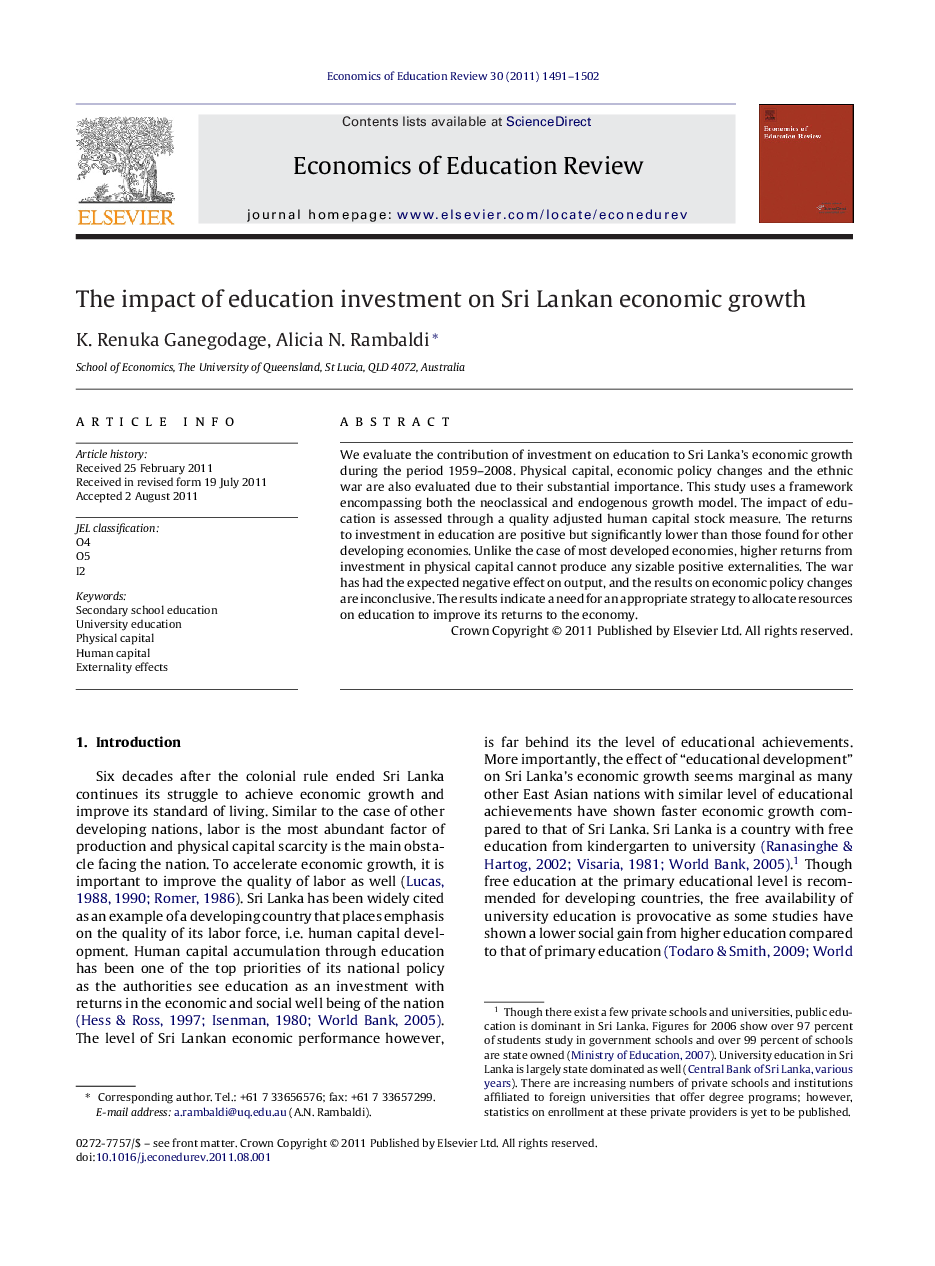| Article ID | Journal | Published Year | Pages | File Type |
|---|---|---|---|---|
| 354536 | Economics of Education Review | 2011 | 12 Pages |
We evaluate the contribution of investment on education to Sri Lanka’s economic growth during the period 1959–2008. Physical capital, economic policy changes and the ethnic war are also evaluated due to their substantial importance. This study uses a framework encompassing both the neoclassical and endogenous growth model. The impact of education is assessed through a quality adjusted human capital stock measure. The returns to investment in education are positive but significantly lower than those found for other developing economies. Unlike the case of most developed economies, higher returns from investment in physical capital cannot produce any sizable positive externalities. The war has had the expected negative effect on output, and the results on economic policy changes are inconclusive. The results indicate a need for an appropriate strategy to allocate resources on education to improve its returns to the economy.
► We evaluate the contribution of investment on education to Sri Lanka’s economic growth during the period 1959–2008. ► We use a framework encompassing both the neoclassical and endogenous growth model. ► The impact of education is assessed through a quality adjusted human capital stock measure. ► The returns to investment in education are positive but significantly lower than those found for other developing economies. ► Unlike the case of most developed economies, higher returns from investment in physical capital cannot produce any sizable positive externalities.
